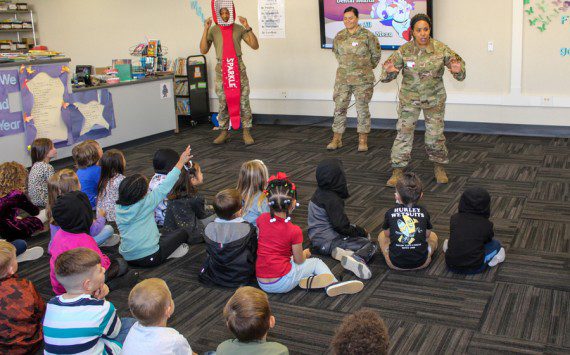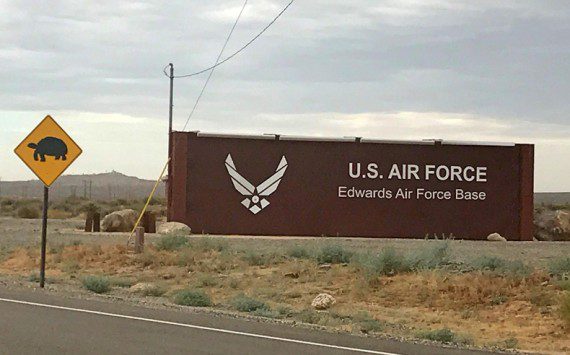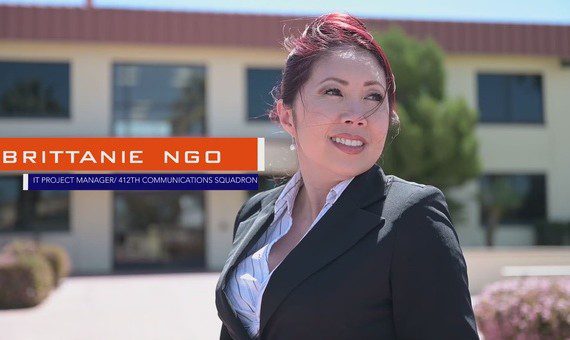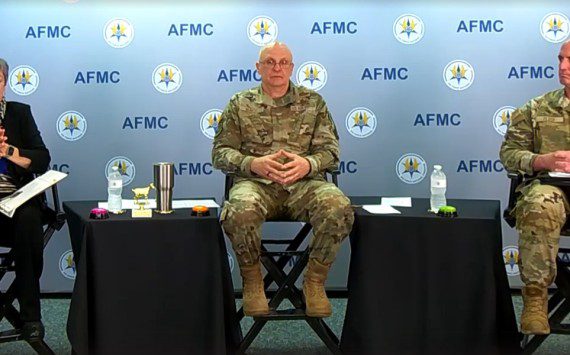As a disabled Air Force veteran living with post-traumatic stress from military sexual trauma, I’ve had my good days and bad days but all of my hard work over the past two years paid off when I recently achieved one of my goals — completing my first full marathon, the Marine Corps Marathon.
I had a difficult childhood. My father committed suicide when I was five years old, and my mother struggled to raise three children on her own. Right before I joined the Air Force, I was sexually assaulted. I joined the Air Force to serve my country, because my father had served in the Air Force and because I’ve had family in all of the services throughout the years. We’ve served since the Revolutionary War.
Five years ago, I was sexually assaulted for the second time while I was serving overseas. I became very depressed and gained about 50 pounds. I had been enlisted and then an officer in public affairs. My friends and co-workers noticed that I became withdrawn and less social but I wouldn’t tell them what happened. It affected my work performance, and I finally went to mental health about a year later for depression and anxiety.
I was seeking help when I was hit with the drawdown after 14 years in the service. My career was everything to me, so this hit me hard. I hit bottom and almost checked myself into an inpatient hospital for mental health for my depression because of suicidal thoughts. I finally admitted what happened to me and went to the Air Force Office of Special Investigations to report the assault.
I went home for six months and went back to school but I missed what I know and love, public affairs, writing about service members, and how important they are to the military. Luckily, I found a government job at Defense Media Activity.
Addiction runs in my family, so I didn’t want to turn to alcohol or drugs to deal with my post-traumatic stress disorder. My father had turned to both before he died. Instead, I found a new passion — running.
While I had been on activity duty, the doctors had told me I couldn’t run anymore because I have osteoarthritis in both knees, and I have to get injections of fake cartilage every six months. I had run track in junior high school, mainly sprinting, and had only run in the military for my physical training tests. But when I started running, I found peace, joy and started finding
my confidence again.
I ran my first half marathon last November at Disneyland and was hooked. You get to run through the parks before they open, and there is so much crowd support and people cheering you on. After the race, I found some Disney running groups on Facebook and have met up with them at other Disney races.
I’ve also been more active with the Wounded Warrior Project, and during my long run training, I imagine some of my WWP alumni and some of the people I’ve served with who are no longer with us running alongside me, motivating me when I’m hitting that wall.
Since I began running in earnest three years ago when I left the Air Force, I’ve lost 40 pounds and have gone from a 16-minute mile to a 10:30-mile pace. The running community is very supportive and always there if you need them or you can run it solo, whatever you’re more comfortable with.
The night before the marathon, I had trouble sleeping, and I had a few nightmares about my attack. When I woke up, I threw on my WWP shirt, my “PTSD, not all wounds are visible” hat, running shoes and pants, and running belt with my bib attached and took the metro in to the Pentagon for the start line. I was nervous and excited. The crowds are the hardest part for me, but I just told myself, “Just breathe.” I just remind myself why I’m there and just try to focus on something else and try to calm down.
The security was crazy, but I got to my corral just in time. I started out a little fast but kept up about an 11-minute pace until mile 16 or so. My main goal was to “Beat the Bridge” but I really wanted to finish below five hours. At mile 12, I was overcome with emotion because it’s the mile of remembrance. You see rows of photos of the fallen. I saw one runner getting very emotional over someone who meant a great deal to him.
It took a moment for me to get myself back together but I pushed on. After that mile, I put my headphones back on and focused.
At mile 20, the bridge was a challenge, and at mile 21, the sprain I had in my right ankle a few weeks ago came back with a
vengeance.
The sprain had flared up my tendinitis, and my right ankle was hurting a little before I had even started so I knew it would be an issue but I was able to ignore it most of the run but by mile 21, it hurt so bad I couldn’t run on it anymore so I had to walk most of the rest of the way from mile 21 to 26.
Throughout the course, I saw signs like “determined,” “remember your training” and “freedom isn’t free, thank you for your service.” Many people had photos honoring service men and women who had fallen. It was very inspirational. I used this energy to push me forward most of my run. I finished in 5:10:07 and earned my medal from the Marine graduate at the Iwo Jima Memorial.
This journey from hitting bottom, crying all the time, gaining weight, losing myself because of what happened with how I handled the assault and losing my job to now, having a good job, earning medals for running half marathons and now a marathon has been interesting.
I encourage everyone to venture out there and follow your dreams. Go out and run or walk a 5K, then a 10K. The running community is very supportive. You never know where your feet will take you.











